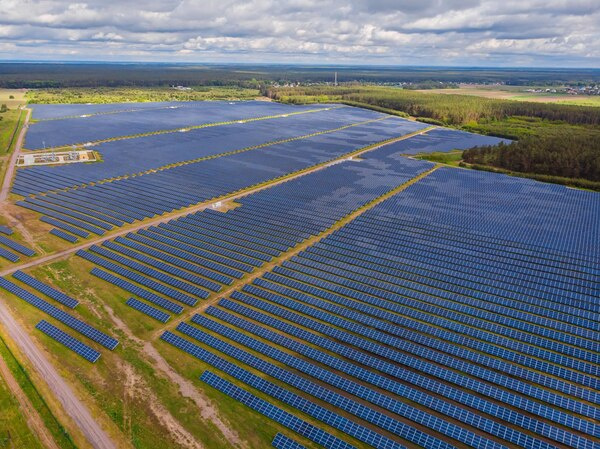Harnessing the Power of Renewable Energy for a Sustainable Future

As the world grapples with the pressing challenges of climate change and environmental degradation, the call for cleaner, more sustainable energy solutions has never been more urgent. Renewable energy, sourced from naturally replenishing elements like sunlight, wind, water, and biomass, offers a promising pathway towards a sustainable future. Transitioning from dependency on fossil fuels to embracing renewable energy not only mitigates environmental impact but also stimulates economic growth and energy security.
One of the primary advantages of renewable energy is its ability to reduce greenhouse gas emissions. Burning fossil fuels for energy is a major contributor to carbon dioxide emissions, which are driving climate change. Renewable energy sources generate little to no greenhouse gases, making them an essential tool in the fight against global warming. Solar panels and wind turbines produce energy without air pollutants or carbon emissions, helping to lower our carbon footprint significantly.
In addition to environmental benefits, renewable energy technologies have witnessed remarkable advancements, resulting in decreased costs and increased efficiency. Take solar power, for example: technological advancements have led to the production of more efficient photovoltaic cells, making solar energy increasingly affordable and accessible. Similarly, innovations in wind turbine designs have resulted in more powerful and cost-effective systems. This trend of improving efficiency while lowering costs makes renewable energy increasingly competitive with traditional energy sources.
Renewable energy also plays a critical role in enhancing energy security and reducing dependence on imported fuels. By harnessing local energy sources, countries can enhance their energy independence and create a resilient energy infrastructure. This reduces vulnerability to global market fluctuations and geopolitical tensions that can disrupt the supply of fossil fuels. Moreover, the decentralization of energy production through renewables allows communities to harness their own local energy potential, which can be particularly beneficial in remote or underdeveloped areas.
Economic growth is another compelling reason to invest in renewable energy. The renewable energy sector has emerged as a significant source of job creation. Jobs in renewable energy, including installation, maintenance, and manufacturing, are often more stable and diverse compared to those in the fossil fuel industry. The growth of this sector fosters innovation and opens new markets, encouraging investment and driving economic development.
Transitioning to renewable energy is not without its challenges. The intermittent nature of some renewable sources, such as solar and wind, necessitates the development of reliable energy storage solutions to ensure a consistent energy supply. Nonetheless, technology is rapidly progressing in this area, with battery storage systems and smart grid technologies helping to bridge the gap. Furthermore, policies and regulations need to be aligned to encourage investment and development in renewable energy infrastructure.
Governments, businesses, and individuals all have critical roles to play in accelerating the transition to renewable energy. Policy incentives, such as subsidies, tax credits, and feed-in tariffs, can promote investment and adoption of renewable technologies. Businesses, particularly those with significant energy demands, are increasingly committing to sustainable practices and renewable energy usage. Meanwhile, individuals can contribute by investing in home solar panels or supporting green energy initiatives.
In conclusion, harnessing the power of renewable energy is a crucial strategy for achieving a sustainable future. The environmental benefits, coupled with economic and energy security advantages, make renewable energy a viable and necessary alternative to fossil fuels. By overcoming the associated challenges and embracing the potential of renewable sources, we can ensure a cleaner, healthier planet for future generations. As we continue to innovate and invest in renewable energy, we move closer to a sustainable world that balances ecological preservation with human progress.